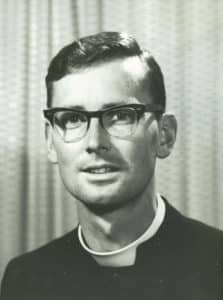
Father Paul Stenhouse, who died last week at the age of 83, would have made a brilliant intelligence officer or spy. It was not for nothing that Archbishop Anthony Fisher OP paid tribute to him at his funeral on 27 November as “one of the sharpest intellects amongst the Australian clergy.”
His gifts in dealing with people from every walk of life, his abilities with seemingly arcane languages, his extraordinary range of contacts among churches, politicians, community organisations, ethnic groups and in world affairs combined with his journalistic ability to distil complex historical, social and political issues into expertly-written yet deeply engaging concise copy are beyond summing up in any normal sense.
Yet he was much more: deeply intelligent and highly educated with a genuine interest in everything and everyone around him, always sensitive to the feelings of others, matching his equally deep faith in Christ and his Church. He wanted to share the Gospel with everyone without imposing faith on a single person. He loved other human beings and wondered at the precious uniqueness of every person he met.
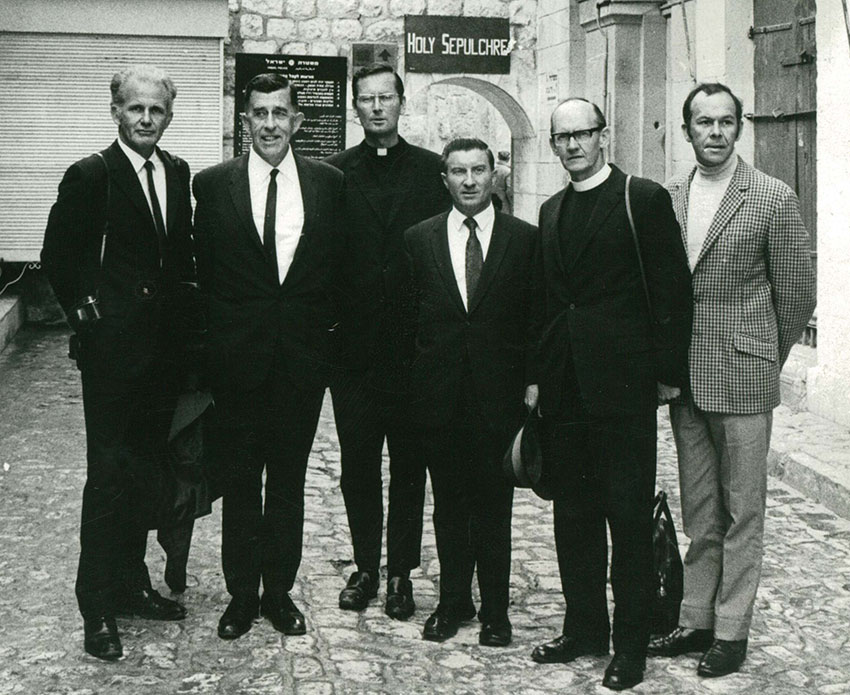
Meanwhile, his scepticism of so many false idols, his calling-out of sham posturing or pretence in politics and public life or treachery and deceit in international affairs made him a minor Cassandra. And he was loved by everyone he knew.
Yet despite the fact that he was primarily known as editor of Annals Australasia, a journalist on an equal footing with professionals who worked on the biggest newspapers in the world and a brilliant scholar of Arabic and semitic studies he was, above all other things, a Catholic priest.
The tributes have poured in since his death in care on 19 November.
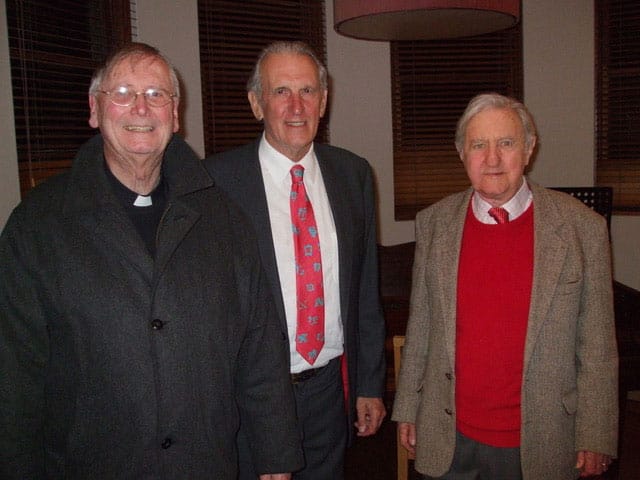
Former Prime Minister Tony Abbott told The Catholic Weekly the influence of the legendary Catholic journalist and editor would live on. “Father Stenhouse was a distinguished scholar in several fields including Islam. Above all, he was a fine priest with a deep faith and a gift of communicating it to others.
“I have lost a friend but have gained much from his friendship. Although writers die, their writings never do. Paul’s spirit will live on through his works,” Mr Abbott said.
Aid to the Church in Need
Among the many bodies paying tribute to Fr Stenhouse this week was a statement from the International Office of Aid to the Church in Need, the global charity which aids persecuted Christians, with which Fr Stenhouse was involved extensively at both the Australian and international levels.
“At international meetings and in talks in London and elsewhere, his own indomitable spirit and oratory challenged, entertained and inspired audiences,” the ACN statement said.
“Paul helped the charity to steer a course after the founder, Fr Werenfried, died and whilst he asked tough questions – based on his extraordinary knowledge of the Middle East in particular – he also bestowed the blessing of deep and abiding friendship on so many.
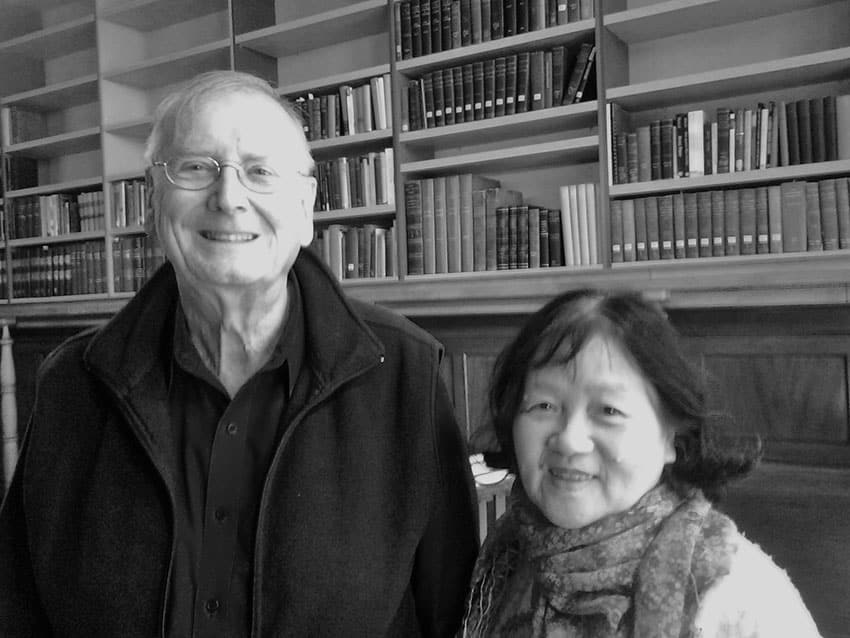
“He would travel the world to help a friend in need – and through Annals, often running articles and adverts on ACN – he inspired the Faith in so many.” Archduke Philipp Habsburg, a member of the General Council of ACN, paid his own tribute. “What a man and what a priest! It was so good to know him still being there with his endless knowledge, wisdom, humour and humility. We will miss him greatly,” the Archduke said.
John McCarthy QC, Australia’s former Ambassador to the Vatican and, like Fr Stenhouse, a former Chair of ACN Australia, said that with the passing of Fr Stenhouse, the Church had lost one of its most outstanding scholars of Islam as well as a great commentator and advisor on the Middle East.
“Australia has lost a world figure in the struggle for religious freedom and the end of persecution of Christians,” he told The Catholic Weekly.
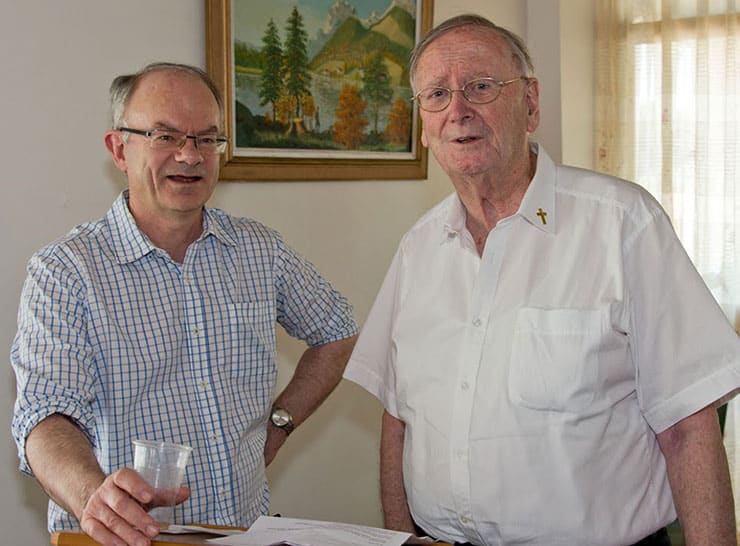
“His legacy is enormous in these areas. All of us are in his debt. May this great defender of the Faith rest in peace.”
Leading Australian theologian Dr Tracey Rowland, at whose marriage Fr Stenhouse presided, paid tribute to not only the academic but the human gifts Fr Stenhouse shared.
“Fr Paul was one of the most highly educated priests I ever met, and I have met a few, but what really stood out to me about him was how he also had a really highly developed affective side as well,” she told The Catholic Weekly.
The practical intellectual
“Some people are great scholars, others are gifted in pastoral care, he was able to occupy both ends of the spectrum at once. He was highly integrated.
“He also loved the Church, the glorious moments in her history and the high culture to which she gave birth. Fr Paul was also an Australian without being ocker. He had buckets of cultural capital and shared it as a kind of common Catholic patrimony.”
Greg Sheridan, the long-serving Foreign Affairs editor of The Australian newspaper, described Fr Stenhouse as much more than a friend.
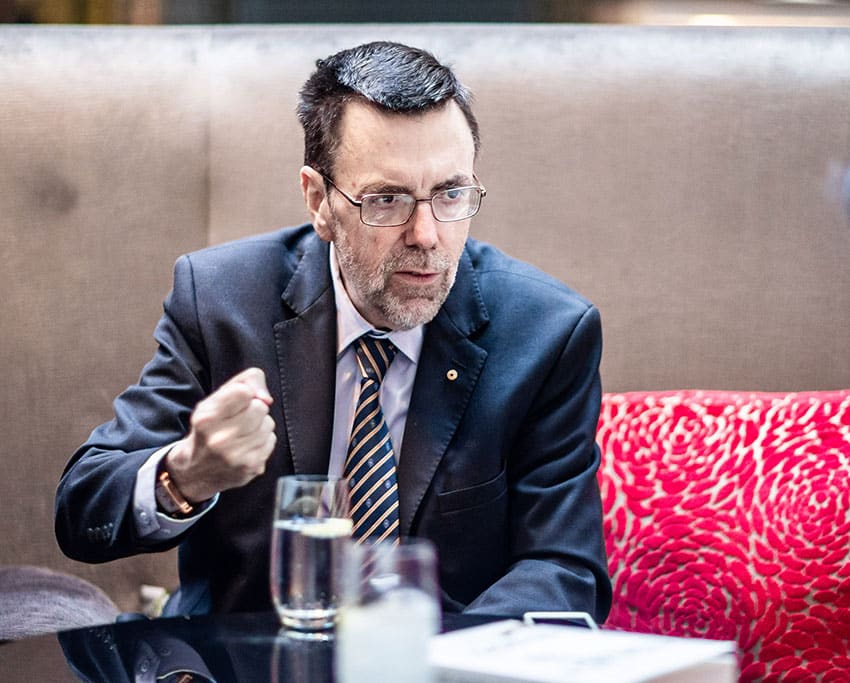
“Paul Stenhouse was a gifted polymath, a cosmopolite of astonishing diversity and virtuosity, a prodigious reader, a knower of infinite facts and theories, and a deeply wise, friendly, good, pastoral priest,” he said. “Surprising as it may seem, that combination is not quite as common as you might think.
“Paul was a friend of mine, but I was very slack about maintaining the friendship properly. Because he was so affable and easy going, and because I suffer from that tendency which besets many journalists to get in touch with friends when I need their help, my contact with him was spasmodic.
“As a priest, he officiated at my wedding, helped me when I was sick, offered wise counsel more than once.
A respected public intellectual
“But I also shamelessly drew on him as a great public intellectual, and talked to him about Islam, Indonesia, the Balkans, Lebanon, the Middle East more widely, medieval Christianity, contemporary Christianity and any other subject which from time to time I needed input on.
“I met him through another great polymath, the former Labor cabinet minister John Wheeldon. John was the associate editor of The Australian when I joined the paper in 1984. Although a conscientious atheist, John had the greatest admiration for Paul and the two were firm friends, although they tended to show off a bit in my company by speaking to each other in a variety of languages which I couldn’t understand.
“Paul befriended many journalists. He combined with his great learning a deep, priestly, pastoral personality, an ever friendly and cheerful demeanour and loads of common sense. My only difficult encounter with him came many years ago when I gave a lecture to a small group on Islam in Indonesia. Paul rose to ask a question. He lavished my feeble remarks with unjustified praise and then, politely and kindly, took them apart piece by piece.
“Paul rose to ask a question. He lavished my feeble remarks with unjustified praise and then, politely and kindly, took them apart piece by piece.”
“And here is his true genius. I liked him just as much afterwards as before, and while I was perhaps none the wiser for the encounter, I was certainly better informed.”
Because of his (entirely justified) skepticism of the state of contemporary Australian tertiary education and because of the importance he saw in creating an answer, helping to establish and then promote Campion College, Australia’s first Liberal Arts tertiary institution, became a personal mission.
Campion founder Karl Schmude paid tribute to Fr Stenhouse’s support and personal encouragement.

“He had a special fondness for Campion,” Mr Schmude told The Catholic Weekly.
“He was, from the outset, a strong supporter of the College, and he served as an early member of the Campion Board. The initial meetings of the Board in the early 2000s took place, at his invitation, at the MSC Monastery in Kensington – and for many years he generously publicised Campion in the pages of Annals.”
It was at Campion, on 19 October, that Fr Stenhouse gave his final public address as the College hosted the Australian Chesterton Conference. The moment was poignant. The longtime journalist and editor clearly knew the end was near but drove himself to honour the commitment to an institution he loved dearly and saw as vital for the future.
“A kind-of intrepid, scholarly Indiana Jones”
As editor of Annals Australasia over five decades (his only appointment as a Missionary of the Sacred Heart), Fr Stenhouse assembled a stellar range of contributors ranging from figures such as Giles Auty, the well-known English art critic and columnist who migrated to Australia in 1995, through to Wanda Skowronska, the Catholic psychologist and author who were among the many willing contributors who made Annals the best-informed and most interesting Australian Catholic journal. Dr Skowronska told The Catholic Weekly that among his many gifts, his erudition was remarkable.
“Once I emailed him with a question and he wrote back saying he was in the middle of Kashmir at the moment (at some relatively remote place) trying to decipher some inscriptions but he would get back to me as soon as he could,” she told The Catholic Weekly.
He was, she said, “a kind of intrepid, scholarly Indiana Jones, forging ahead always for Christ, making friends in different parts of the world.”
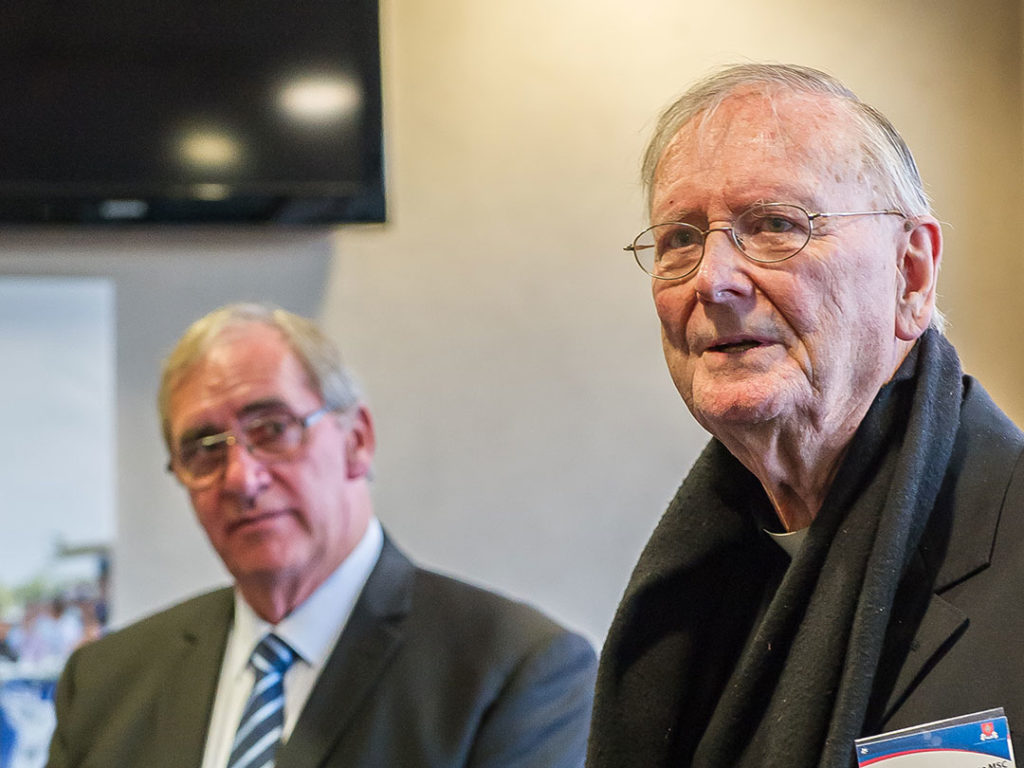
“I recall once walking up to his office, and finding him poring over a manuscript with his finger going rapidly from right to left. After I entered this office with floor to ceiling bookshelves (the room’s ceilings were several storeys high), I could see that the manuscript was in Arabic and I asked if he were reading something interesting and he said ‘yes’ in a matter of fact way. But such was his graciousness he put aside the papers to answer the questions I had for some particular article I was working on. He was kind like that to many people.”
Fr Stenhouse left school at the age of 14 to become a journalist working on several NSW newspapers but, first through his preparation for priesthood and then subsequently he achieved remarkable academic heights.
Academic heights
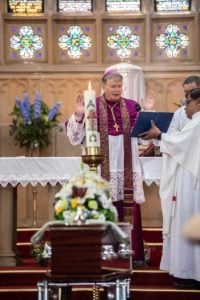
In 2015 Australian Catholic University awarded him its highest honour, Doctor of the University (honoris causa) “in recognition of his significant contributions to knowledge and the life of learning in Australia and internationally, to higher education, to journalism and Catholic culture, and to priestly service and pastoral care of the Catholic community.” Recalling him this week, ACU Deputy Vice Chancellor Coordination, Hayden Ramsay, described Fr Stenhouse as “a public intellectual—a rare thing for a priest In these days.
“He was a learned man; a man who trained himself to doctoral level and beyond in the languages and cultures of the Middle East,” Prof Ramsay told The Catholic Weekly.
“Fr Stenhouse knew the importance of being able to read the Koran in the original and understand the religious dimension behind key social issues of our day.
“He could speak with authority on the terrible persecution of Christians in the 21st century.
“I knew him only as an elderly man. He was sweet and kind – and not afraid to state truth. Despite his national importance, he was in a special way an ornament of his Order and of the Archdiocese of Sydney.”
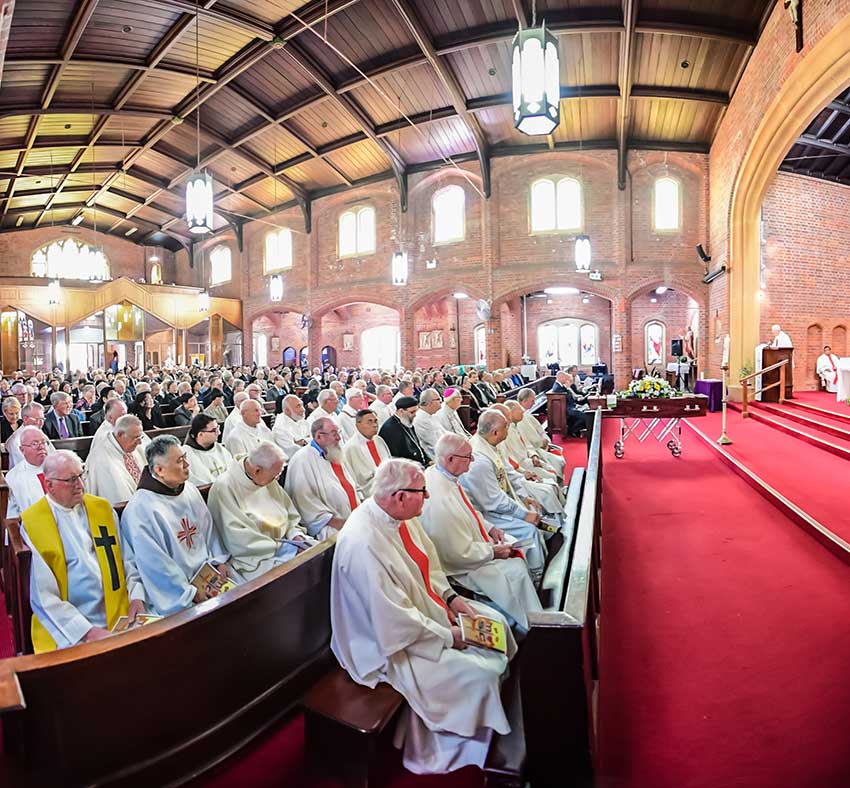
Speaking at Fr Stenhouse’s Requiem Mass at Our Lady of the Rosary in Kensington on 27 November, Archbishop Anthony Fisher OP mourned his death.
Fr Stenhouse was, said Archbishop Fisher, “a man of deep faith and humanity, a keen observer of culture and society, a prolific writer and editor, a scholar and linguist, he was above all a loyal son of the Church and friend to many, including my predecessor and myself.
“I have only known him personally since he started dying in 2003. That made the last act of his grand opera an unpredictably long one and a tribute to his determination.
“But when I saw him in the hospice he told me he had put the last Annals to bed: it was clear he had finally decided to die.
“Paul was a missionary through and through. At the heart of everything Paul did was his mission to promote the Catholic faith. Annals was a testament to that mission.
Good and faithful servant
“His missionary vocation took him all over the world and allowed him to collect exotic languages, stories and friends along the way.
“He translated chronicles of ancient Samaritan high priests in Rome, lived in Tito’s Yugoslavia, travelled in and out of war-torn Beirut.
“Whether you agreed with Paul or not – and mostly I found I did – his conversation was always erudite and interesting. Vale good and faithful servant: enter now into the joy of your master.”
Related:
